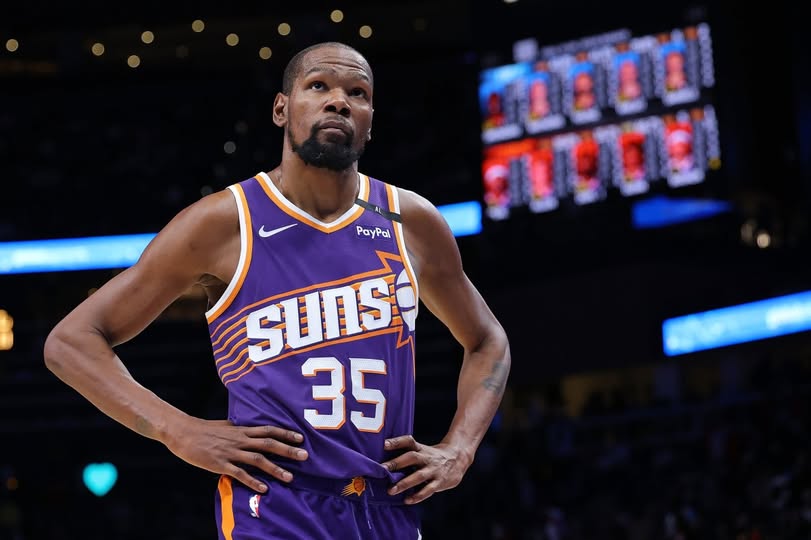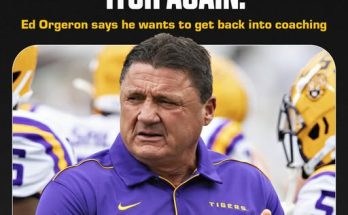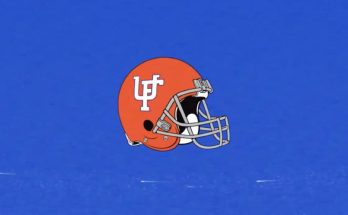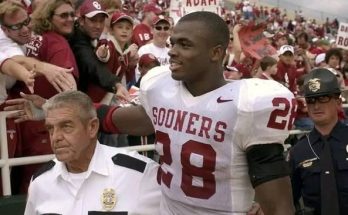The Miami Heat miss out on another superstar, and for a franchise with championship aspirations and a reputation for pulling off bold moves, it’s another bitter pill to swallow. In the ever-competitive Eastern Conference, where margins are thin and windows close fast, the Heat find themselves once again on the outside looking in as one of the league’s elite talents chooses a different destination. The news reverberated across South Florida and the NBA landscape alike, a reminder that even Pat Riley’s charisma and Miami’s sun-soaked appeal aren’t always enough to sway the biggest names in the game.
The failed pursuit adds to a growing list of near-misses for a franchise that has been stuck in a strange middle ground—good enough to consistently compete but seemingly just shy of fielding a true championship juggernaut. While Jimmy Butler has proven to be one of the most formidable competitors in basketball and Bam Adebayo has grown into one of the league’s best two-way big men, the Heat’s front office knows better than anyone that in today’s NBA, two stars often aren’t enough. You need that third game-changer, the kind of player who can take over late in games, lift a team through cold stretches, and shift the balance of power in a playoff series. Miami thought they had a chance. They always do. But this time, like several times before, that third piece slipped through their fingers.
It’s a pattern that has frustrated Heat fans and possibly even shaken confidence in the Heat’s recruiting edge. Damian Lillard was once enamored with the idea of playing in Miami, with social media posts and lyrics suggesting South Beach was on his mind. But when trade talks reached a breaking point, Portland decided to go in a different direction—sending Lillard to Milwaukee and blindsiding a franchise that had spent months preparing a pitch centered around culture, loyalty, and winning. Bradley Beal was another name that danced in the rumor mill, a player whose scoring prowess and off-court demeanor fit the Heat profile. But Beal landed in Phoenix. Kevin Durant? Same story. Even Donovan Mitchell, a player many believed would thrive in Miami’s system, ended up elsewhere. The Heat always seem to be in the conversation, yet the outcome has become increasingly predictable: close, but not quite.
This latest rejection, while disappointing, isn’t necessarily shocking. The NBA has changed. Star players now seek a blend of factors—legacy, money, lifestyle, roster fit, and increasingly, player empowerment. Miami still boasts the glamour, no state income tax, and a well-respected organization with a proven pedigree. But it’s no longer the only destination with those qualities. Teams like the Nuggets, Celtics, Bucks, and even the Thunder offer competitive packages: younger cores, financial flexibility, and compelling visions for the future. And while the Heat’s “culture” is often praised by players around the league, it can also be intimidating. The grueling conditioning tests, rigid expectations, and no-nonsense approach may appeal to some, but others—especially those looking to preserve their bodies or prioritize personal freedom—might see it as a deterrent.
For Pat Riley and the Heat brass, the result demands reflection. Riley is known for his persuasive brilliance, often compared to a master chess player, reading the league two steps ahead. He was the architect of the Big Three era, luring LeBron James and Chris Bosh to join Dwyane Wade in what remains one of the most seismic moves in sports history. That run resulted in two championships and four consecutive Finals appearances, etching Riley’s name even deeper into NBA lore. But since then, the road has been bumpy. Miami has had playoff success, including a Finals berth in the bubble and another trip in 2023, but their inability to land the next superstar has made those runs feel more miraculous than sustainable.
What makes this recent swing-and-miss more troubling is the timing. Jimmy Butler is 34, and though he remains a force in the postseason, his durability is starting to wane. Adebayo continues to grow, but he isn’t a player who consistently dominates offensively. Tyler Herro, despite his scoring flashes, has battled injuries and inconsistency. The supporting cast has heart—players like Caleb Martin and Duncan Robinson have had moments—but they can’t be counted on to deliver against elite competition night after night. Miami needed a superstar infusion, not just to contend next season, but to usher in the next era. Missing again creates a sense of urgency bordering on desperation.
It also invites questions about what comes next. Do the Heat run it back, banking on internal growth, better health, and Erik Spoelstra’s tactical brilliance to overcome the roster’s limitations? Do they shift gears and pursue trades for second-tier stars or veterans on expiring deals? Or do they begin to consider a longer-term rebuild, an uncomfortable idea for a franchise that prides itself on being in win-now mode at all times? Riley has always resisted the notion of tanking, believing that a competitive culture can coexist with roster development. But the lack of elite incoming talent—both through trades and the draft—makes that a difficult balance to strike.
Fan sentiment is also beginning to turn. Heat faithful have long believed in the organization’s ability to make magic happen, to pull rabbits out of hats when it mattered most. But belief is now competing with skepticism. Every swing that doesn’t connect adds pressure. And in a league driven by stars, missing out on another elite talent is more than just a PR loss—it’s a strategic setback that impacts ticket sales, television appeal, and overall credibility as a top-tier franchise destination.
Still, Miami isn’t without options. The team could pursue emerging stars who might not yet be household names but have the potential to blossom in a new environment. They could package draft picks and young assets to take calculated risks, perhaps on distressed stars looking for fresh starts. They could also double down on development, betting that Spoelstra’s system and the Heat’s training infrastructure can elevate players beyond perceived ceilings. But none of those paths provide the instant adrenaline shot that a true superstar does.
Even internally, the clock is ticking. How long will Jimmy Butler be willing to stay loyal without a real chance to win it all? How long will Bam Adebayo want to remain the cornerstone of a team that can’t bring in help? If Miami doesn’t pivot quickly and effectively, they risk not just missing out on future stars—but losing the ones they already have.
The league waits for no one. This summer’s free agency and trade market may still offer opportunities, but the top domino has already fallen elsewhere. And Miami, once again, is left to reassess. The Heat have built their reputation on resilience and grit, and they’ve often found ways to overachieve despite being overlooked. That part of their identity remains intact. But in a superstar-driven NBA, even the strongest cultures have limits. You can build all the right habits, craft all the perfect game plans, and have one of the best coaches on the planet—but without that game-changing third pillar, the hill becomes steeper every season.
Pat Riley will go back to the drawing board. He always does. But for now, the Heat are left with a familiar, frustrating reality. Another superstar, another chance, another chapter in a saga that’s starting to feel painfully predictable.
Markieff Morris knows what it takes to win in Miami. The veteran forward, who spent the 2021-22 season with the Miami HEAT, isn’t just speaking from the perspective of a journeyman who’s worn several jerseys. He’s speaking from the heart of someone who has lived the culture, walked through the hallways of FTX Arena, and suited up for games in front of one of the NBA’s most demanding and loyal fanbases. And when Morris says that Kevin Durant to Miami makes sense, it’s not a hot take. It’s a carefully considered belief grounded in experience, basketball IQ, and a strong understanding of both Durant’s game and the unique fabric of the Miami HEAT organization.
Durant has been the subject of swirling trade rumors and speculative headlines ever since his partnership with the Phoenix Suns appeared to fall short of expectations. After a second-round playoff exit and whispers of locker room friction, Durant’s name is once again surfacing in offseason talks. And amid all the noise, the Miami HEAT stand out as a destination that doesn’t just offer glitz or glamour—it offers structure, culture, and a genuine shot at contention. For Markieff Morris, the logic is simple: “If Kevin Durant is serious about winning and wants a place that will maximize what he has left, Miami is that place.”
Morris, known for his toughness, defense, and basketball acumen, points to the organizational infrastructure as one of the key reasons Miami is the ideal fit. Under the leadership of Pat Riley, Erik Spoelstra, and a front office that prioritizes discipline, accountability, and championship-caliber conditioning, the HEAT have built a reputation that stretches beyond South Beach. They’ve become the NBA’s model for toughness, a program where talent alone isn’t enough—you have to buy in. According to Morris, that’s precisely why Durant would thrive.
“KD’s one of the most gifted scorers ever, we all know that,” Morris says. “But people overlook how much better he is when he’s playing in a structured environment. Golden State showed that. He bought into the system, played defense, moved the ball, and they won titles. Miami has that same kind of structure. It ain’t about just giving him the ball and letting him go one-on-one every time. It’s about making the game easier for him.”
It’s that team-first mentality that Morris believes would both challenge and elevate Durant. Spoelstra’s coaching philosophy—emphasizing defensive communication, off-ball movement, and conditioning—has turned undrafted players into playoff contributors and transformed overlooked prospects into key rotation pieces. If that’s what Spoelstra can do with limited resources, imagine what he could do with a weapon like Durant.
The hypothetical pairing of Durant with Jimmy Butler and Bam Adebayo is also part of what excites Morris. “That trio right there could win a title,” he says. “Jimmy brings the fire and the leadership, Bam anchors the defense and can score in his own way, and KD gives you that unstoppable offense. You got three guys who play hard, take pride in defense, and can take over games. That’s championship material.”
Morris also emphasizes the intangible aspect of Heat Culture—a term that’s become something of a buzzword but remains deeply rooted in how the franchise operates. “There’s a level of discipline and expectation there that you don’t get everywhere,” Morris says. “You come into that locker room and you know you better be in shape, you better know the plays, and you better compete. If not, you won’t last. KD’s been in the league long enough to appreciate that. He don’t need coddling—he needs structure, and Miami gives you that.”
The financials and logistics of a potential Durant-to-Miami trade are complicated, of course. Durant is under contract with the Suns, and Miami would likely have to give up a significant package that could include young players, picks, or key rotation members. But Morris isn’t concerned about what Miami would have to send out. “Anytime you can get a player like KD, you do it,” he says. “That’s just how this league works. You worry about fit and depth later. Stars win in this league, and KD is still one of the top dogs.”
There’s also a sense of mutual benefit in such a move. While Miami would be getting a top-tier scorer and future Hall-of-Famer, Durant would be landing in an environment that’s built to extend his prime. At 35, Durant still has elite tools—deadeye shooting, silky handles for a seven-footer, and the ability to get a clean look from anywhere on the floor. But he’s not the same athlete he was at 25, and relying solely on isolation basketball or carrying the load night in and night out is neither sustainable nor wise. Morris believes that in Miami, Durant could preserve his body, extend his career, and compete for a ring in a way that doesn’t burn him out.
“Think about it—KD doesn’t have to carry the team every night in Miami,” Morris says. “You got Jimmy, you got Bam, you got Spoelstra drawing up plays, and a front office that knows how to build a bench. He could pick his spots, be efficient, and still be the killer we all know.”
And then there’s the lifestyle component—something that often gets overlooked in favor of Xs and Os. Miami isn’t just a city; it’s a brand. It’s a place where stars have flourished, both on and off the court. For someone like Durant, who has often seemed to value both his on-court legacy and his off-court peace of mind, Miami offers a compelling blend of competitiveness and comfort.
“KD’s been through a lot, man,” Morris says. “He’s had the media stuff, the injuries, the critics, all of it. Sometimes, you need a fresh start in a place where you can focus on hooping and not the drama. Miami gives you that. You show up, you work, and you win. Simple as that.”
Durant has never played with a player quite like Jimmy Butler—someone whose leadership comes through grit, intensity, and an unrelenting will to win. For some, Butler’s fiery demeanor can be polarizing. For others, it’s infectious. Morris falls into the latter category and believes Durant would not only respect Butler’s leadership but feed off it.
“Jimmy’s not gonna sugarcoat nothing,” Morris says. “He’ll tell you when you’re messing up, but he’s also the first one to go to war with you. KD is the same way in a lot of respects. He’s quiet, but he’s competitive as hell. I think they’d bring the best out of each other.”
Even from a legacy standpoint, Morris sees a move to Miami as a powerful next chapter for Durant. With two championships already under his belt but a somewhat murky public perception, Durant’s story still has room for a defining moment. Leading the Miami HEAT to a title—especially in a league dominated by superteams and social media narratives—could be exactly that.
“A title in Miami hits different,” Morris says. “That’s not a team that buys rings. That’s a team that earns ‘em. KD could cement his legacy in a whole new way if he went there and got it done.”
Of course, nothing is guaranteed in the NBA. Superstars change teams all the time, and even the most logical fits on paper don’t always pan out in reality. But when someone like Markieff Morris, a battle-tested veteran who has played alongside the league’s elite and seen the game from every angle, vouches so confidently for a move, it carries weight.
The Miami HEAT have the culture. They have the coaching. They have the supporting cast. And if they can somehow land Kevin Durant, they might just have the final piece to another championship puzzle. For Morris, it’s not just about assembling talent—it’s about building a team with identity, with hunger, and with a shared mission. And he believes Durant would fit into that mission perfectly.
“Put KD in that jersey, and it’s a problem for the whole league,” Morris says. “You give Spo another weapon, give Jimmy and Bam that kind of help, and watch what happens. That’s a championship team right there. And KD would love every second of it.”



